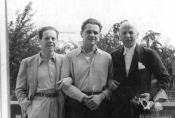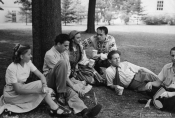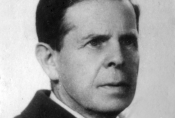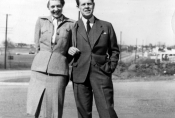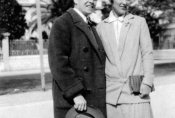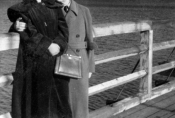Ryszard Ordyński
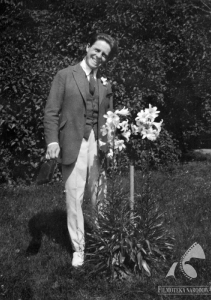
Real name: Dawid Blumenfeld. Director, screenwriter, actor, theatre critic. He was born on October 5, 1878, in Maków Podhalański. Student of the Faculty of Philosophy of Jagiellonian University, where he graduated from in 1901. Initially, he worked as a teacher. He was interested in theatre and wrote newspaper reviews of performances. He also travelled abroad to see German, French, Russian and English theatre. In 1909, he became involved with the Deutsches Theater in Berlin as an assistant to the famous director Max Reinhardt, and later – an independent director. He was also the head of the drama school operating at that theatre. In 1913, he staged the play Sumurun in Warsaw, starring Pola Negri, which was later filmed by Ernst Lubitsch. In 1915, he moved to the United States, where he worked with numerous theatres in New York and Los Angeles. In the years 1917-1920, he directed at the New York Metropolitan Opera House. At the same time, he took up screenwriting (Bloody Rose, 1917). After returning to Warsaw in 1920, he directed theatre productions, mainly Shakespeare.
His interest in cinema was growing steadily. In 1927, he starred as an actor in Bunt krwi i żelaza/Revolt of Blood and Iron by Leon Trystan. Soon, he started directing films. He made Uśmiech losu/The Smile of Fate (1927) based on Włodzimierz Perzyński’s drama, Mogiłę nieznanego żołnierza/The Grave of the Unknown Soldier (1927) based on Andrzej Strug’s prose, and filmed the Polish national epic – Pan Tadeusz by Adam Mickiewicz (1928), which was a production on a grand scale at the time. It was that film that earned him critical acclaim in the film community (Pan Tadeusz was digitally reconstructed in 2012 by the National Film Archive based on preserved fragments, previously scattered). In the early 1930s, in Paramount studio located in the Paris suburb of Joinville, he made Polish-language versions of American films, including Tajemnica lekarza/Half an Hour (1930). At that time, he also directed a variety of films starring Polish actors, including Janko Muzykant/Janko the Musician (1930), Dziesięciu z Pawiaka/Ten from Pawiak (1931), Amerykańska awantura/American Fracas (1936), and the documentary Sztandar wolności/Flag of Freedom (1935) – dedicated to Marshal Piłsudski.
In 1934, he became chairman of the Supreme Council of the Film Industry in Poland. Three years later, he moved to Paris, where he was a correspondent of the Polish press. After the outbreak of war, he left for the U.S., where he served as a film consultant on the occupied lands. He returned to Poland in 1947 and worked first for Polski Theatre and then Nowy Theatre. He translated world drama classics, including Bernard Shaw and Tennessee Williams. His memoirs Z mojej włóczęgi/My Vagabond Life had two editions: in 1939, and posthumously in 1956. He died on August 13, 1953, in Warsaw.
